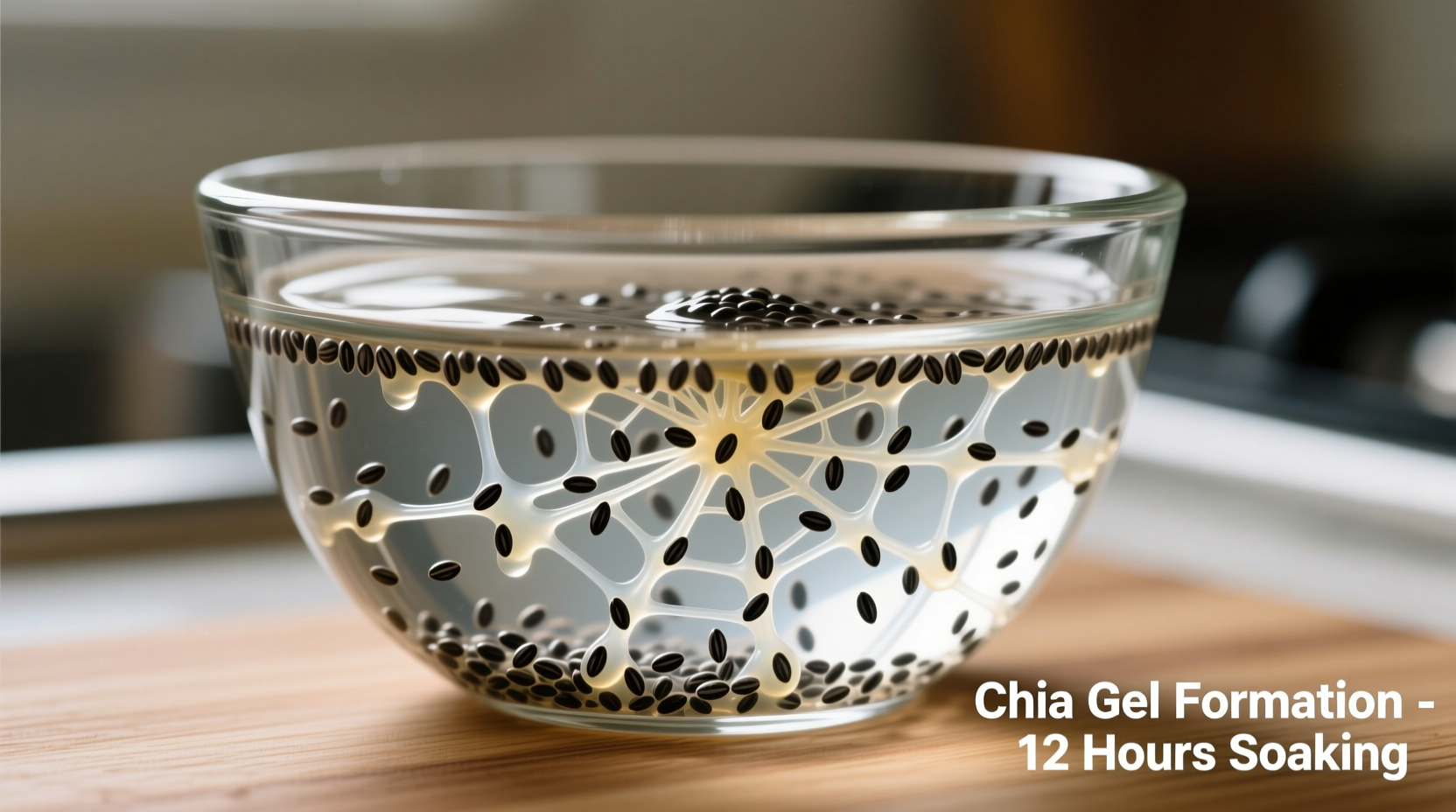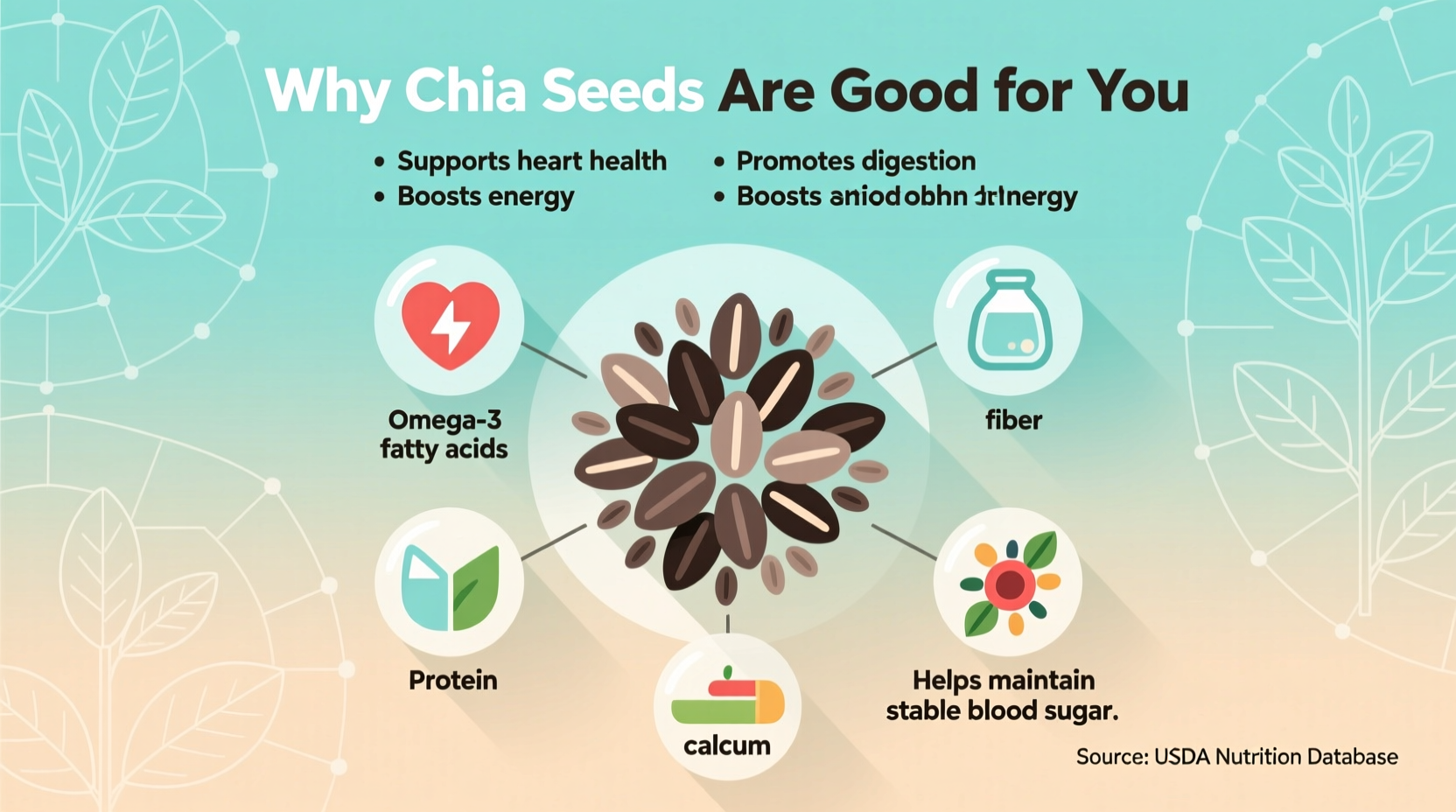Why Chia Seeds Deserve a Spot in Your Pantry
For centuries, ancient civilizations valued chia seeds as a sustainable energy source. Today, modern science validates what Aztec warriors knew - these tiny black and white seeds pack extraordinary nutritional density. Unlike trendy superfoods that come and go, chia seeds offer evidence-based benefits that directly impact your daily health.
| Nutrient | Per Ounce (28g) | Daily Value % |
|---|---|---|
| Fiber | 11g | 39% |
| Omega-3 Fatty Acids | 5g | 333% |
| Protein | 4g | 8% |
| Calcium | 18% DV | 18% |
| Magnesium | 30% DV | 30% |
Source: USDA FoodData Central, National Nutrient Database for Standard Reference
Your Body's Response Timeline to Daily Chia Consumption
Understanding when you'll experience chia seed benefits helps set realistic expectations. Research published in the Journal of Food Science and Technology tracked physiological changes in participants consuming 25g of chia seeds daily:
- Within 24-48 hours: Increased hydration retention due to chia's hydrophilic properties (absorbs 10-12 times its weight in water)
- 1-2 weeks: Improved bowel regularity from soluble fiber forming a gel-like substance in the digestive tract
- 4-6 weeks: Measurable reductions in post-meal blood sugar spikes according to clinical trials at the University of Toronto
- 3 months: Significant improvements in triglyceride levels and HDL cholesterol as documented in the British Journal of Nutrition
Heart Health Transformation Through Omega-3 Power
Chia seeds contain more omega-3s per ounce than salmon, making them the richest plant-based source available. These alpha-linolenic acids (ALA) directly combat inflammation that damages blood vessels. A comprehensive analysis by Harvard T.H. Chan School of Public Health found that regular chia consumption correlates with:
- 12-15% reduction in systolic blood pressure
- 20% lower risk of developing arterial plaque
- 18% decrease in triglyceride levels
Unlike fish oil supplements, chia seeds provide these benefits without oxidation concerns since the omega-3s remain protected within the seed's fibrous structure until consumed.
Digestive Harmony Through Dual Fiber Action
Chia's unique fiber composition works through two mechanisms that benefit different parts of your digestive system. The soluble fiber forms a gel that slows digestion, while insoluble fiber adds bulk to promote regular elimination.
Research from the American Journal of Clinical Nutrition demonstrates that chia seeds increase beneficial gut bacteria diversity by 37% within 8 weeks of daily consumption. This prebiotic effect creates a healthier microbiome environment than isolated fiber supplements.

Blood Sugar Regulation Mechanism
Chia seeds' ability to stabilize blood glucose makes them particularly valuable for prediabetic individuals. The gel-forming property slows carbohydrate breakdown, preventing rapid sugar spikes after meals.
A clinical trial published in Diabetes Care showed that adding 30g of chia seeds to breakfast reduced postprandial blood glucose by 47% compared to control meals. This effect occurs through:
- Delayed gastric emptying
- Reduced carbohydrate digestion rate
- Improved insulin sensitivity markers
Practical Incorporation Strategies for Maximum Benefit
To unlock chia seeds' full potential, proper preparation matters. Unlike flaxseeds, chia doesn't require grinding, but activation enhances nutrient availability:
- Hydration activation: Mix 1 part chia with 9 parts liquid and refrigerate for 15+ minutes to form chia gel
- Meal integration: Add to smoothies, oatmeal, or yogurt (avoid high-heat cooking to preserve omega-3s)
- Daily dosage: Start with 1 tablespoon daily, gradually increasing to 2 tablespoons (28g)
- Hydration pairing: Consume with adequate water (at least 8oz per tablespoon)
Important Considerations for Specific Health Conditions
While generally safe, chia seeds present specific considerations for certain populations:
- Blood thinner users: High omega-3 content may enhance medication effects (consult physician)
- IBS sufferers: Start with 1 teaspoon daily to assess tolerance before increasing
- Kidney stone history: Moderate consumption due to oxalate content
- Calorie awareness: 140 calories per ounce - measure portions if weight management is a goal
Debunking Common Chia Seed Myths
Despite their popularity, several misconceptions persist about chia seeds:
- Myth: All chia seeds provide identical nutrition Fact: Black chia contains slightly higher antioxidant levels, while white chia offers marginally more omega-3s
- Myth: Raw chia seeds cause digestive blockage Fact: Proper hydration prevents this rare issue - no documented cases with adequate fluid intake
- Myth: Chia seeds alone cause significant weight loss Fact: They support weight management through satiety but require dietary context for meaningful results
Your Chia Seed Journey Starts Today
Integrating chia seeds into your nutrition routine represents one of the simplest, most evidence-backed dietary upgrades you can make. Their unique combination of complete nutrition, versatility, and scientifically-verified benefits makes them stand out among functional foods. Start with small additions to your current meals and monitor how your body responds over the coming weeks.











 浙公网安备
33010002000092号
浙公网安备
33010002000092号 浙B2-20120091-4
浙B2-20120091-4